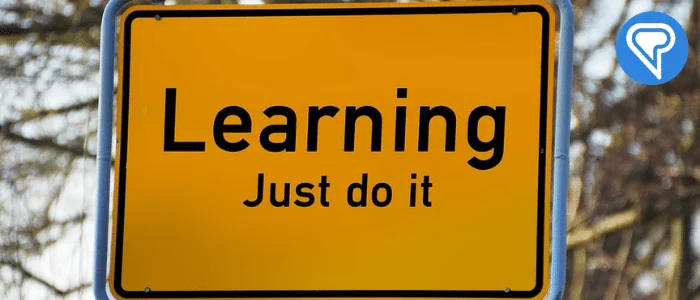Language Learning, Talent or Attitude has been transcribed from Steve’s YouTube channel. The original video was published on May 6, 2012
My TV show came and went. I’m going to post a link here in that first opening box underneath my video. I can’t remember what they called it, but it was a program on Canada’s Global Television Network on prime time devoted to this question of polyglots. They choose the term “hyper-polyglots”, which I must say I think is a ridiculous term. Let me just say that. Polyglot is polyglot. I like the word linguist, people who speak many languages. Once you’ve got five, you can make it 10, you can make it 15, I don’t think it makes much difference.
I was a bit disappointed. Keith Swain, who has a channel here at YouTube calls himself the Canadian Linguist whom I got to know and is a great guy, he and I flew out from Vancouver, Alex, who is another very nice fellow, came from Winnipeg, although he’s originally from Quebec, to participate, we flew all the way out there. We were in a conversation, a total of five of us including Axel from Toronto and James who is also from Toronto. We spoke for two hours in a very interesting free-flowing discussion about language learning and so forth and so on. I think we managed to survive to the tune of about a minute and a half, which I guess is inevitable, but I thought our discussion was quite interesting and I certainly enjoyed getting to know all those people or getting to know them better in the case of Keith.
I was annoyed that we didn’t have more of our discussion and I was also annoyed at the sort of suggestion, although they didn’t really come out conclusively and say so, but the implication that somehow someone who speaks 10 or 15 languages is strange. Again, Michael Erard, who wrote the book Babble No More, just kind of dances around the edges of this position, doesn’t come out and say so, but there seems to be this suggestion that there’s something different about the brains of people who can speak many languages. I don’t believe this is the case, except to the extent that as you learn anything your brain changes.
If you are a violinist your brain will change the more you play the violin. They’ve done surveys to show that that part of your brain, for example, that controls the movements of your fingers will get larger. The famous London taxi drivers whose part of the brain which controls detailed things that relate to names of streets and where they’re located that’s going to grow. So, yeah, if you go to the trouble of learning 10 or 15 languages your brain is going to be a little bit different. However, there are just too many people…
I’m studying Czech now and listening to my wonderful series on Czech history. So this Czech nationalist of the early 19th century Frantisek Palacky is introduced and he spoke 15 or 16 languages. Well, of course, because he lived in the Austria at that time, the Austrian Empire. He spoke Czech, German, Slovakian, Hungarian and Croatian. There were so many languages there that Latin was the common language in the church, so he spoke Latin. I can’t remember what other languages he spoke.
I’ve heard that in Ethiopia it’s not uncommon for people to speak four or five languages. If you live in an area where there are a lot of different languages spoken, you’re going to end up speaking a lot of different languages. Don’t tell me that all those people are musical, left-handed, have immune deficiencies or whatever, other strange things that they mentioned on this TV program. I firmly believe that language learning is a matter of the determination of someone, their will, their desire, their interest, their need, their opportunity to speak first one language, then a second, then a third. Then if they decide to pursue learning more languages, they learn more of them. It’s not more complicated than that.
The most difficult language is the first foreign or nonnative language that we learn, that was my experience, because we don’t know that we can do it, especially if you live in North America, China or even in Japan, any country where really you only need the local language. I lived in Montreal so, theoretically, I needed French, but in fact we didn’t because Montreal in the ‘50s was one million English-speaking people who didn’t speak to the two million French-speaking people. That’s no longer the case. Now you need it, so there are a high percentage of bilingual people in Montreal amongst both the Francophones and the Anglophones.
In many cases, they’re trilingual because they might speak Italian, French and English extremely well. For example, our goal tender here in Vancouver on the Vancouver Canucks is almost native-like in Italian, French and English. I don’t think he’s necessarily a weirdo with some immune deficiency, I think there are many people like him. I know many people in Montreal today who have call it the language of their immigrant parents, English and French and, in some cases, one more. To me, it’s not something strange in your brain, it’s more a matter of whether you apply yourself to the task, whether you have the opportunity, whether you choose to pursue it and, as I say, once you get past the first one the second one becomes easier and so on and so forth, plus you pick up some freebies.
Richard Simcott was featured, which is great because I think Richard is a super guy, in this TV series and he speaks a lot of languages and he speaks languages from different language groups, albeit European up until his recent venture into Turkish. He speaks Macedonian, Bulgarian, Serbian, I don’t know, Czech, those are very similar languages, French, Spanish, Portuguese. Once you venture out there if you speak Dutch you can learn _______, so German is not far behind.
If your goal is to rack up a lot of languages, which I’m not suggesting is Richard’s goal, but this whole numbers thing is a little bit misleading. Not only can you rack up numbers by studying related languages, but as I say, the more you learn the more comfortable you get. You’d be surprised if you decided to work towards speaking 20 languages, if you put in the time you can do it. I’ve spoken to Richard, he’s a perfectly normal guy, Luca is a normal guy, the guys that we spoke to down there were all normal guys, I’m a bit weird, but by enlarge it’s normal people who have a strong interest in speaking languages, other people are interested in other things. So I do get quite annoyed at this suggestion that somehow it’s something weird.
Are certain people more talented than others? Yes. I think that Richard and Luca are both extremely talented, especially because I’ve heard Luca speak so many different languages and his pronunciation is absolutely excellent. My own view and he’ll probably disagree, I think it’s because he’s good at it. Why is he good at it? I think it’s an attitude thing. I think he listens well. Although, to be fair, his English sounds to me nonnative-like which is fair enough. He speaks it extremely fluently, however, I’ve heard native speakers tell me that his German sounds native, his Swedish is almost native, his Russian, I thought his Chinese was pretty spectacular, not to mention the French and Spanish. Those are romance languages and he’s lived there, but it’s these others that he does so well at. So I think he’s talented and I think Richard is talented.
Perhaps I have a greater facility to pick up or to get closer to native pronunciation than some other people, but as I’ve always said I don’t think that matters so much. I know people that I’ve worked with who really speak English well, but who have a very strong accent. It doesn’t matter. I think the accent is where there could be differences in talent, but I think the rest of it is more a matter of how much effort you’re willing to put in, your attitude, your confidence, your determination, your interest, your love for the language and all those other good things.
So thank you for listening, bye for now.









2 comments on “Language Learning, Talent or Attitude”
Comments are closed.
Hi Steve, You are working hard for the benefit for the language learner. Its a nice blog. Keep it up.